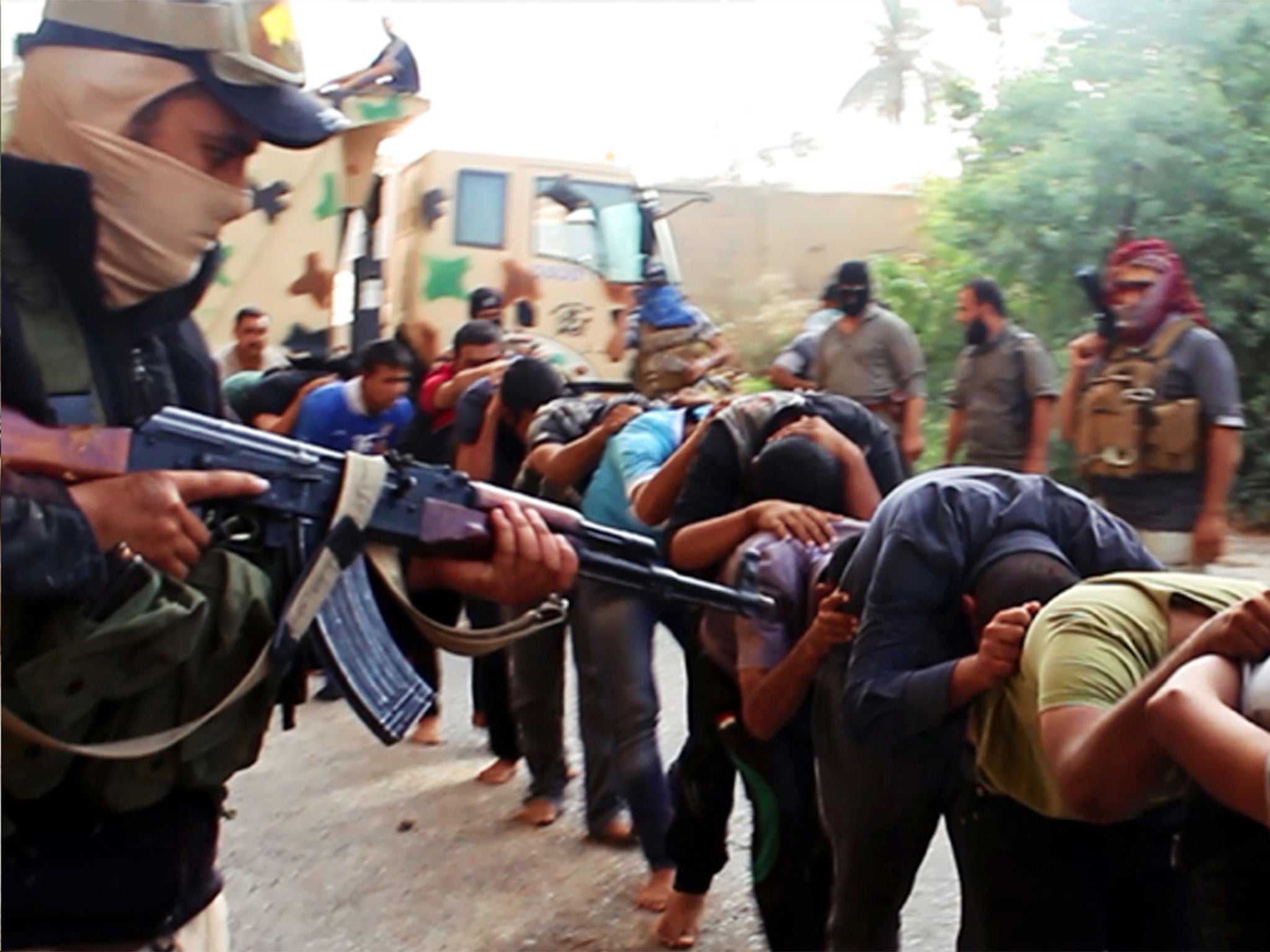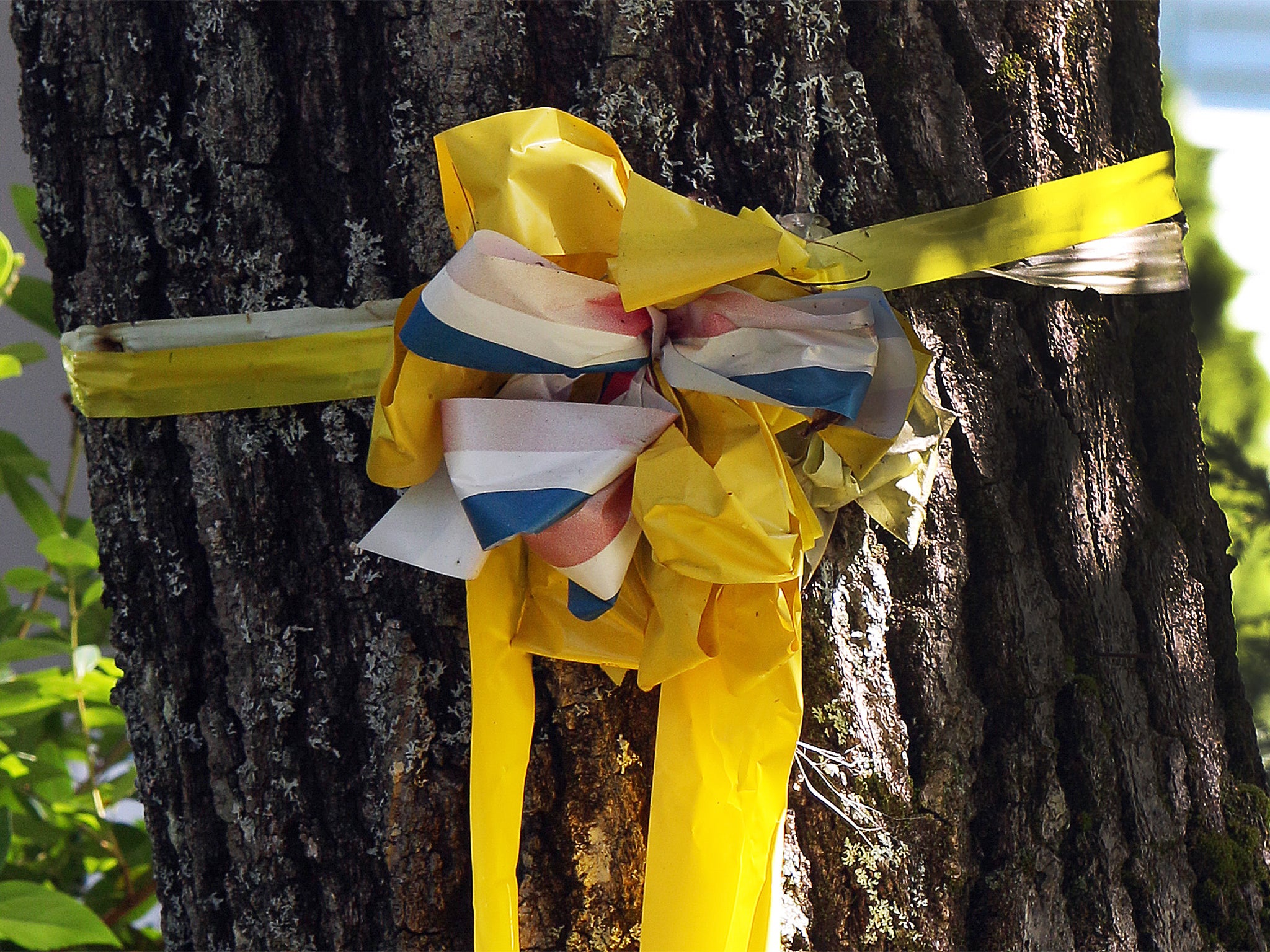Middle East crisis: We know all too much about the cruelty of Isis – but all too little about who they are
Now President Obama has seen the next US reporter to be threatened with beheading, will he blink?


For centuries, governments told their soldiers and their people to “Know Your Enemy”. The problem with the Isis “Caliphate” – and it is a big problem for President Obama after journalist James Foley’s murder – is that we don’t know who it is. We are told of its butchery, cruelty, its kidnapping of women, its burying alive, its viciousness towards Christians and Yazidis and its public beheadings, but that is all. Even the Isis leader, Abu Bakr al-Baghdadi, comes across as a mad combination of the Mahdi who murdered Gordon of Khartoum, the assassinated Osama bin Laden and Oliver Cromwell, who did to the civilians of Drogheda what the Muslim Lord Protector al-Baghdadi has done to his enemies.
Foley’s ritual slaughter is enough to dissuade even the most foolhardy of journalists from seeking an interview with al-Baghdadi. Never before in the Middle East has so much land been out of bounds to the Western media. So ignorant are we of this Islamic State in Iraq and the Levant – a dark land in which the reports we see of it are their own phone videos – that the Obamas, Camerons and Hammonds can only gnash their teeth at this unspeakable enemy. Easy reaction – but not much to go on. Yet Isis knows how to do one thing: confront Obama with his very own hostage problem, the same conundrum Tony Blair faced when Ken Bigley appeared before the video lens. Do you ignore the warnings, thus proving that you don’t care about your individual citizens when undertaking military operations – which is the truth – or do you turn into Jimmy Carter, curtsy to every whim of your enemies, go down on one knee and tell the Pentagon to “Hold it right there”?
Now Obama has seen the next American reporter threatened with beheading. Will he blink? He can’t, can he?
So I suspect the answer will be what presidents and prime ministers have always done best in the Middle East, and announce that Foley’s murder shows not only just how awful Isis is – but how important it is to go on bombing it in order to destroy the wretched institution. In other words, turn the sadistic Isis reaction to the air strikes into the reason why America is carrying out the air strikes. After all, we were bombarding Isis because it was killing Yazidis and dispossessing Christians and threatening Kurds. And Iraq. Now we have another reason to bomb al-Baghdadi’s “Caliphate”.
For journalists, yesterday was a fearful day. Thirty years ago, Arabs would acknowledge our special role as neutral observers. As the years have gone by – and as journalists have been killed by American military forces and Israeli soldiers and Iraqi rebels (and Arab militias), so our vulnerability has grown infinitely greater. When our chum, the Egyptian Field Marshal Abdol Fottah al-Sissi, locks up journalists for months, precious little do Western governments care about them. When our own masters show so little concern for our fate, is it any surprise that Isis –or Isil or whatever – are prepared to kill them. Sure, we don’t execute them. But that’s not a significance Isis is going to take much interest in.

There are two truths that the West is going to have to face about al-Baghdadi’s savage and dotty “Caliphate”: these executioners began their careers – or their predecessors did – in the video-murderers of the anti-American resistance in Iraq; and however disgusting their activities, there are hundreds of thousands of Sunni Muslims who live in the area of the Caliphate and who have NOT fled for their lives. This, of course, makes unhappy reading. If the “Caliphate” is so revolting, disgusting, gruesome in its purity-driven brutality, how come all these people – Iraqis and Syrians – did not flee along with their Christian brothers? Are a few thousand armed fighters really able to coerce so many people over such a vast tract of the Middle East?
Let’s go back to the months and years that followed the 2003 Anglo-American invasion. The rebels or insurgents felt able to demonstrate extraordinary cruelty against their captives. I was once offered a videotape in Fallujah of a man having his throat cut by hooded men. It took me some time to realise that the victim was almost certainly a Russian soldier and his murderers were Chechens. Someone had brought this video to Fallujah so that the future butchers of the resistance could learn from it. This is the epic violence which our invasion unleashed.
And most Sunni Muslims stayed in their towns and cities and went on living there while their brothers – the Isis citizens of the future – went about their grisly work. In other words, the “Caliphate” obviously does not appear to be so terrifying to them as it does to us. Is there a problem here? Or is it just a matter, as the Americans seem to think, that the Sunni tribes – those all-purpose mini-societies which we depend on when things go wrong – have only to be bought over or their national government made more “inclusive” after the departure of al-Maliki to bump off al-Baghdadi? These are the questions we should ask.
In his last weeks, Osama bin Laden was expressing his revulsion at the sectarian nature of “Islamist” attacks – he even received a translation from Yemen of an article I wrote in The Independent in which I described al-Qa’ida as “the most sectarian organisation in the world”.
Things have moved on. At least when I met bin Laden, I didn’t fear for my life.